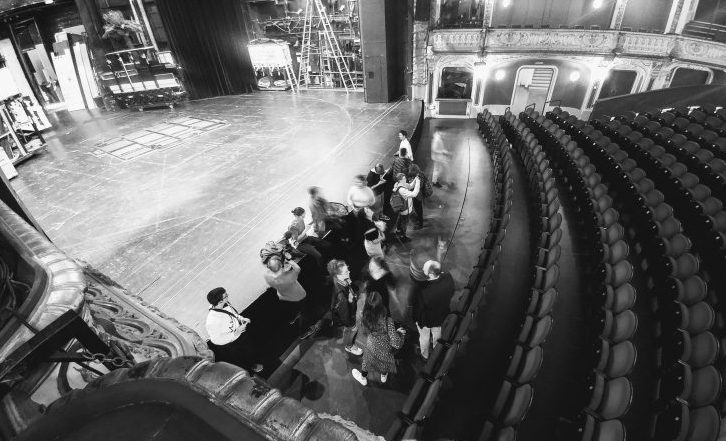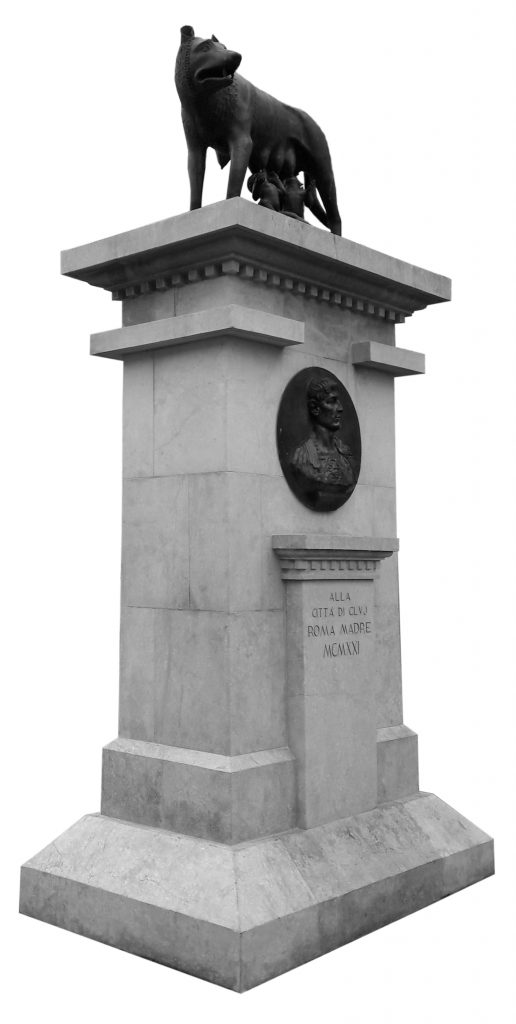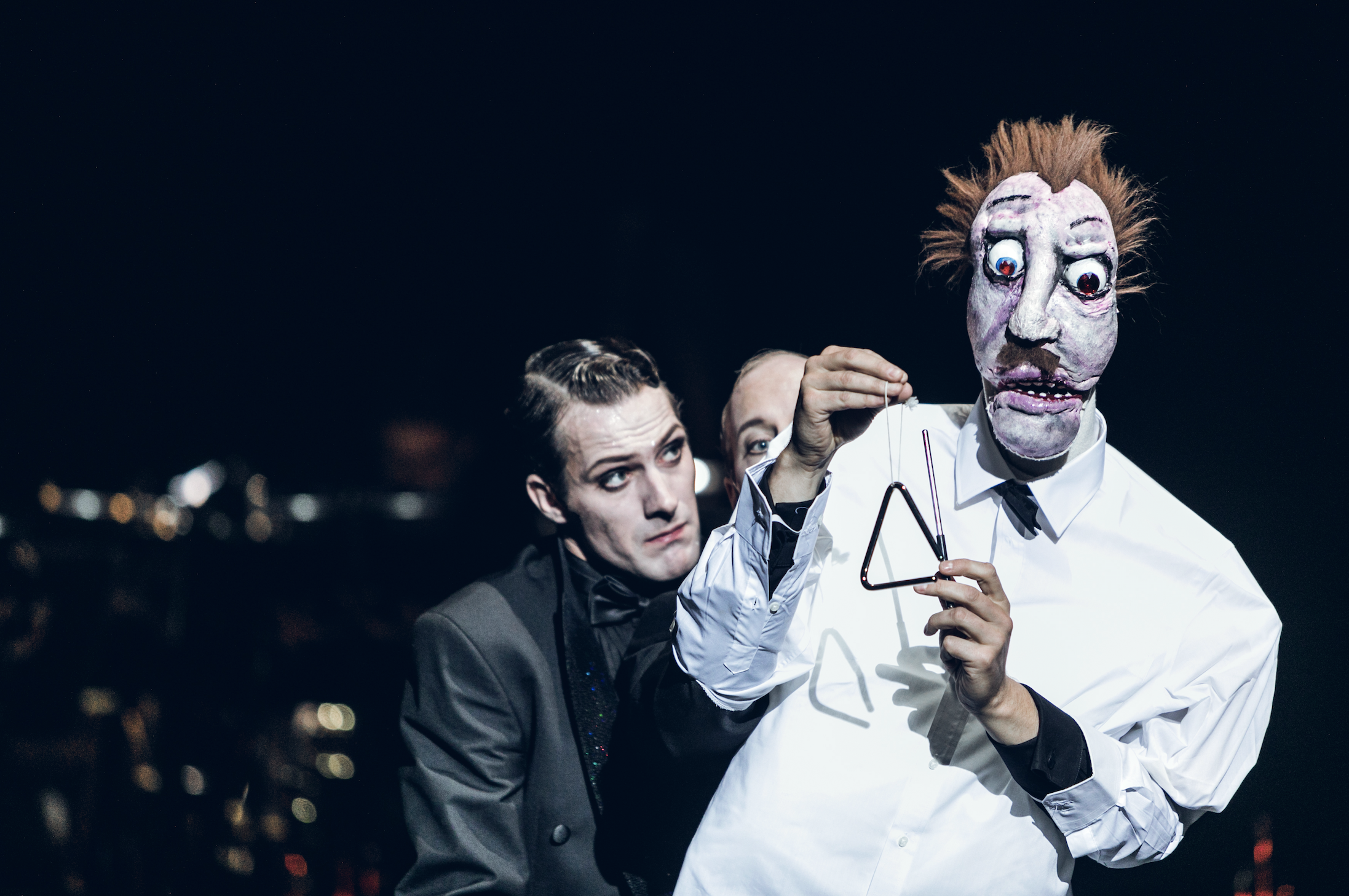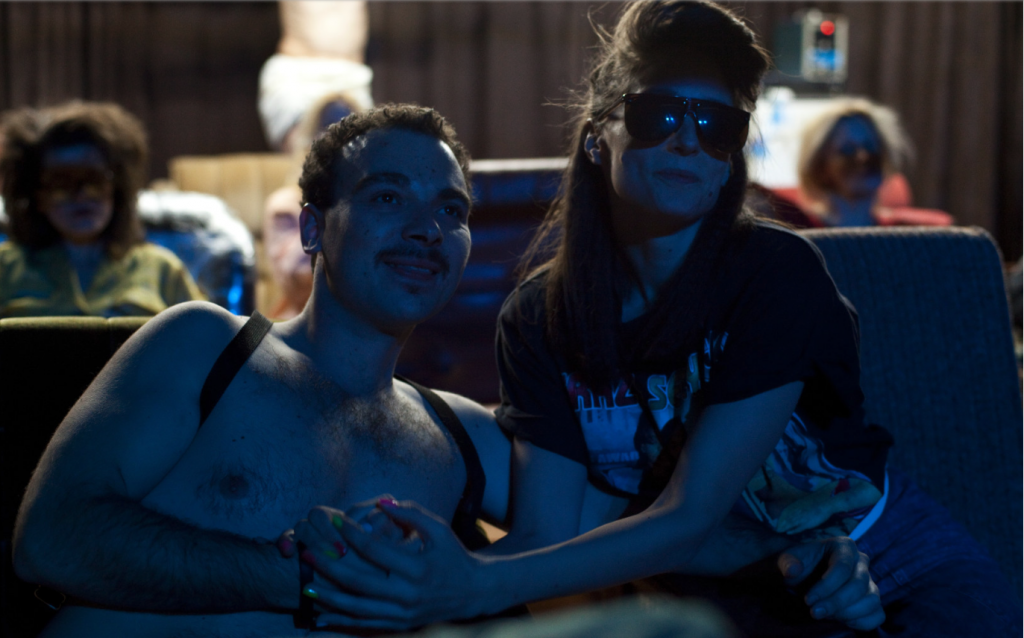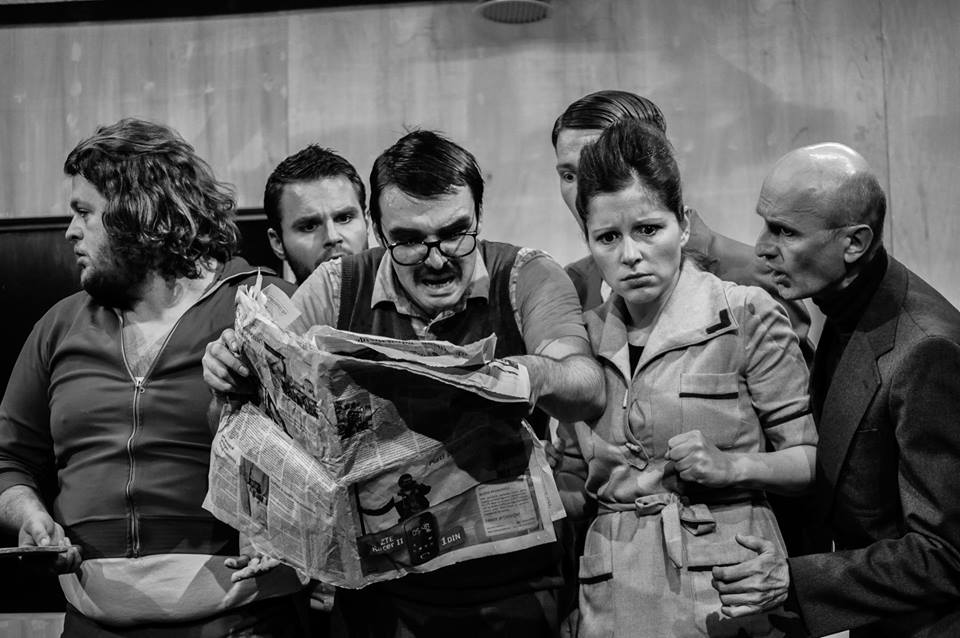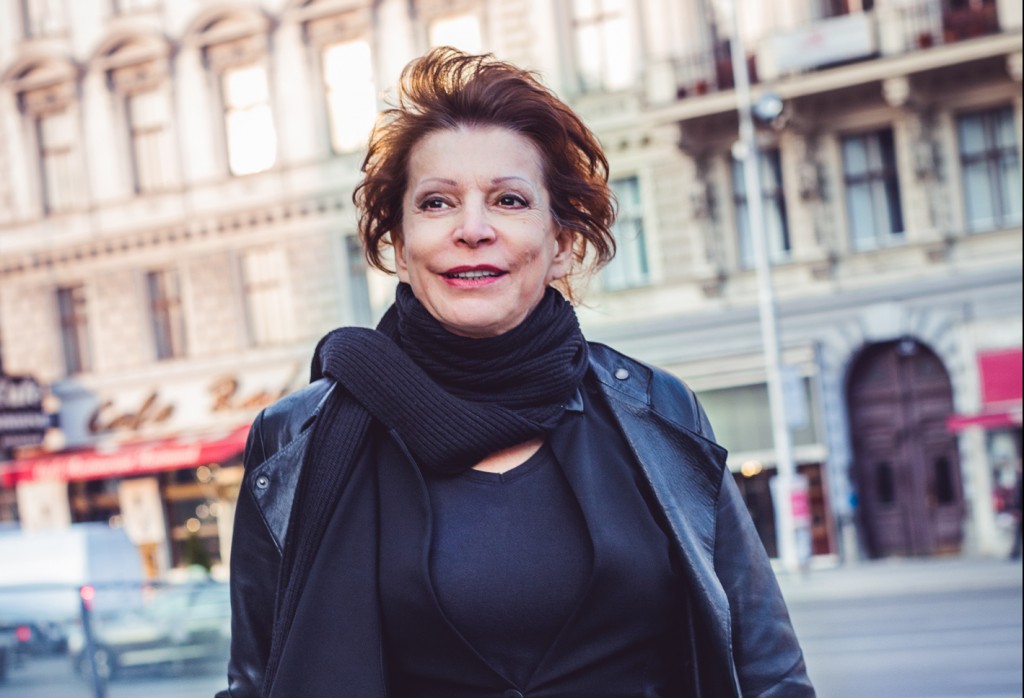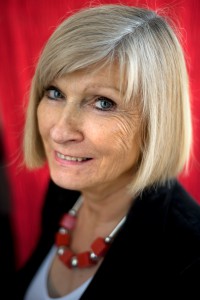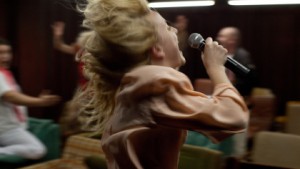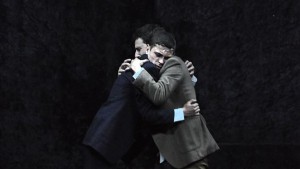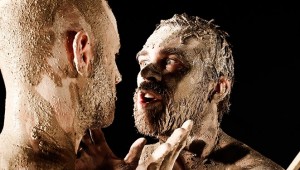The Generation of Joyful Knowledge
With the Silver Surfer world premiere at Volx/Margareten, the studio of the Volkstheater Wien has brought out an innovative theatrical experiment, in which the bracket between millenials and silver surfers finds its expression in all their contradictory and appropriate facets, without abandoning the critical attitude towards smart technology.
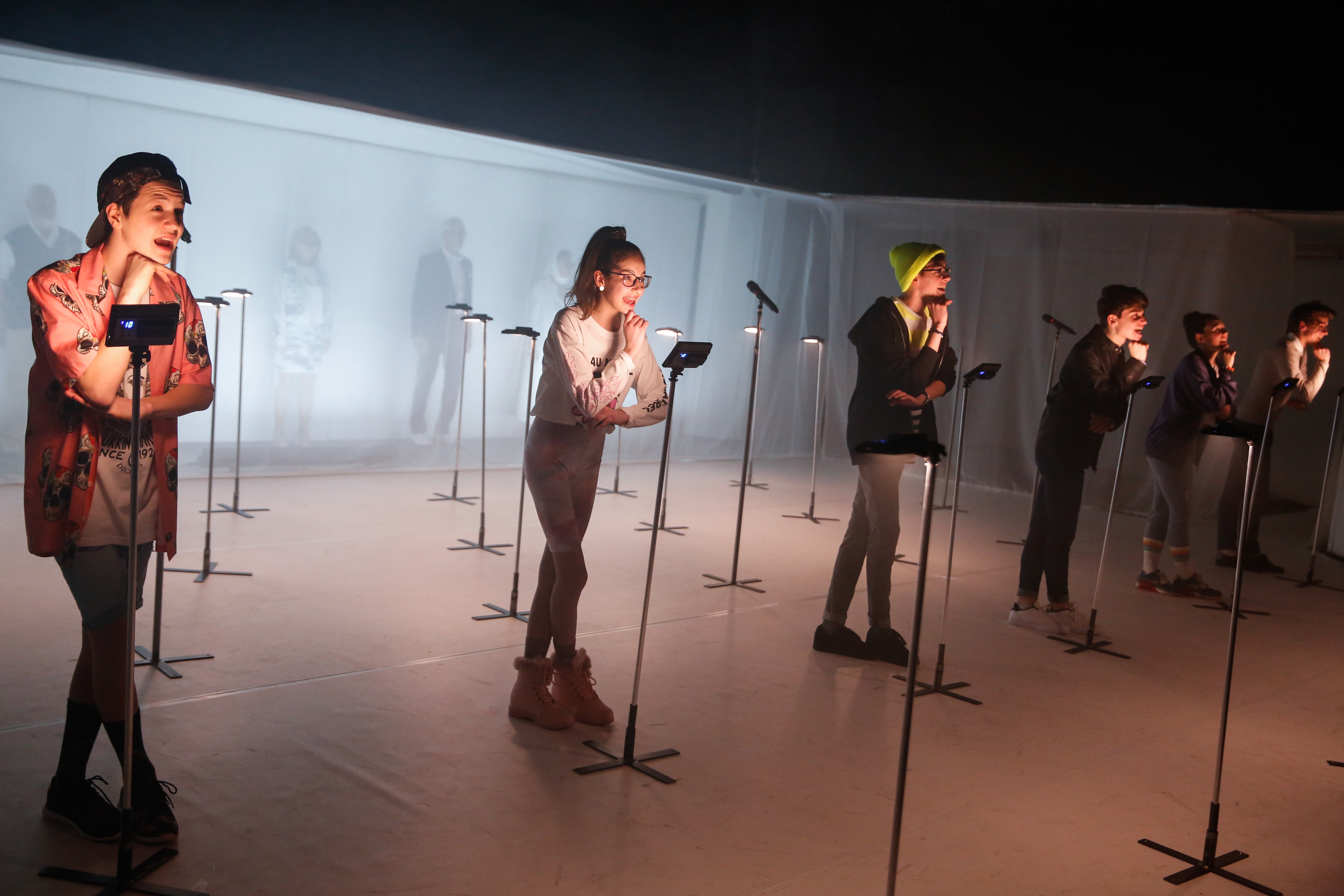
Ganaele Langlois is Professor in Communication Studies at the York University. Her book Meaning in the Age of Social Media (Palgrave Macmillan, 2014) studies how the very concept of meaning is being reshaped in the light of human-computer interaction. Following Langlois, in the process of creation of meaning online, the human user is only «a component, but not the driving force of these systems». A social networking site (such as Facebook or Instagram) is based on a very complex software architecture, only partly activated by us and made by a sum of technical objects that possess their own agency and are able to influence, reshape, and bend to their will the human actors.
Digital Natives is a cooperation project by the Union des Théâtres de l’Europe (UTE) with the support of Creative Europe, that involves the Volkstheater Wien, Schauspiel Köln, the Hugarian Theatre of Cluj, the Comédie de Reims and the National Theatre of Northern Greece. At the end of March 2019, Vienna was animated by a two day-long series of conferences, talks and performances, all dedicated to exploring how twenty years of interactive Web technologies were able to determine a new way of looking at reality and living interconnected lives. Digital interaction can indeed be interpreted as an opportunity in digging new paths to creativity: but, if relationships seem to no longer have limits, how can we trace boundaries between a fake reality and a real fakeness?
Since the advent of anthropology, human sciences have come to terms with the importance of a specific context, a system of social conventions and common rituals that really defines the roots and the logic of a local community. The very concepts of “openness” and “closure” can be fully understood only by measuring how such conventions and rituals invite or refuse a negotiation with others coming from different cultures.
If, back in the days, the Internet was created as a powerful vehicle to exchange data and information, Web 2.0 – those platforms characterized by highly interactive functionalities – deeply changed the modes used by different communities to establish a dialogue. We are not only talking about a new order and pace in mingling social traditions, but also new languages and velocities able to reshape the basic forms of intergenerational communications.
This is the thematic core of Silver Surfer, a project by Volkstheater’s Youth Programme, directed by Constance Cauers and Malte Andritter, that had its world premiere Saturday 30 March at the Volx/Margareten in Vienna.
Five adults and six teenagers meet on the same theatrical stage to discuss their everyday life, building, layer by layer, a dense collective discourse around the “digital diet” of the present society.
The wide blank stage is surrounded by translucent curtains, a sort of open limbo between two generations. A sparse vegetation of black lecterns grows on the empty white space; each stand has a LED light that illuminates the faces when the actors in front talk. Between rapid accounts of conversations with mom and dad and quick dialogues through which the digital natives walk the first steps into a romantic affair, every line of this very rhythmic and sparkling text is addressed to the audience. This shows how disconnected we really are when engaged in virtual communication. “Online relationship”, “Digital daily routine”, “Digital assault” are some of the titles that break the text in several scenes; but there are also such terms as “Nude pictures”, “Porn”, “Darknet”, all related to “the dark side of the Internet”. The virtual world is always a mirror of the actual one, where an inattentive traveler can easily get lost.
In establishing virtual contacts with the outer social circle, a turning point may then be a solid education, a kind of knowledge that makes us cautious and curious towards how we can actually appear to the eyes of the others and how we can understand and gain control over new systems of power. In his model of “discourse analysis”, Michel Foucault used to look at language and practices as battlefield where one has to oppose resistance to a number of power structures. In Langlois’ opinion such war is nowadays fought through the creation and the negotiation of meaning: «Media transform the conditions within which we humans come to interpret, produce, and share meanings. At the same time, media can be harnessed by specific social forces to establish power formations». Social media are fundamentally based on the idea that an individual view of the world can recognize itself through the act of circulating information and thoughts, in a way which is no longer able to distinguish private from public content.
The moment when the world was divided into online and offline is buried in the past: the Italian media theorist Giovanni Boccia Artieri (University of Urbino) argues that «we are facing an accumulation of occasions in which individuals “play” with self-representation forms, thanks to the diffusion of reproduction and production technologies in daily life, from digital photo cameras to editing software». The resulting media forms are very close to the ones promoted by the mainstream media and such scenario is reinforced by a growing “disintermediation” (the removal of intermediaries in a supply chain), encountered both in the market and in the individual construct of reality.
In his speech at “Digital Hermits”, the first Digitization Conference in Cluj (read the report here), a very young Hungarian YouTuber, Tamás Trunk, was explaining how quickly a teenager can launch his/her own online career as an influencer, only by endorsing the right product at the right time. Because virtual communities are already prompt in getting engaged in a communal attitude to marketing and in sharing ideas.
And yet, Silver Surfer focuses on the controversial duplicity between virtual and actual presence, observing how certain natural dynamics of interaction are today encapsulated in a form of “digital milieu”, where everyone has to prove his or her level of connection, to be a witness of a shifting era.
The performance is a generous mix of vivacity and humor, the group of teenagers is very efficient in presenting different approaches to storytelling. Singing songs live, the actors display a polished body language and an accurate work on facial expressions that become extremely important in the way they convey and share with the spectator what such a fluvial text couldn’t, especially when the choir speaks in unison, winking at a Brecht’s “didactic drama” and, at the same time, portraying the effects of fixed thought.
One-to-one relations (between natives or with the «instaGrans») can in fact serve as a good model for political involvement, which is another big “black hole” of the proliferating digital culture(s): the absence of a real political attitude, the end of what Jürgen Habermas called “communicative action”. This has historically founded on language and the possibility of formulating an argumentation, as deliberate as possible but able to be contested and discredited.
To gain back what Habermas had envisioned, the German philosopher Byung-Chul Han proposes a quest for an alternative, a “digital rationality” that comes from a crucial understanding: the “digital swarm” is not a mass, rather an aggregate of individual egos not organized in a political construct.
As inhabitants of different areas of the same gigantic virtual community, our very imagery is being replaced with a wall full of slogans and tags, a semantic formula that gives the users the impression of being part of the same family of friends and followers, consuming and sharing the very same symbolic forms, productive «networked publics» (Diana Boyd) who recognize themselves in the same hidden processes.
While the social media establish themselves as the most advanced meaning machines, where a users’ response can discipline, at the same time, the accurateness of advertising and the relevance of the news, we are all “texting”, “snapchatting”, “skypeing”, “instagramming”, “posting”, “twitting”. All terms that had no sense less than a couple of decades ago and that now are included in every dictionary, at least in our glittering Western world. What is interesting about Silver Surfer is the way its energy sets the stage for a new kind of critique, because a clear division between “apocalyptic” and “integrated” (as Umberto Eco had defined two attitudes towards new technologies) is no longer there.
Thus, the idea of inviting members from Veterans and Generation Z to handle the same vocabulary and together funding a common language is an intelligent getaway to gain knowledge by living a real-time experience.
«What’s missing again at the moment that is has to be now?» is the last sentence of a long “teen choir”. Facebook suggests us to re-post a “memory” of a time when we were still married or still pregnant with our first daughter, and suddenly the past becomes a revenant; the future appears under the mask of “events” to be interested in. Between
posts, video-chats, virtual encounters and Instagram stories that 24 hours later are gone, this is the scenario: a condition where present is the only tense. At the end of the day, theatre is one of the last occasions to gather in the same room, among unknown people, and together occupy a time and a space which are owned and negotiated by an actual community. The same that, in the bar of the Volx/Margareten, has shared a drink and toasted to the wonderful effort of this bunch of members from a generation of joyful knowledge.
Published on 2 May 2019
